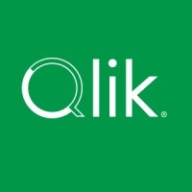

Azure Data Factory and Talend Data Fabric are competing products in the cloud-based data integration space. Talend Data Fabric holds an edge due to its robust feature set and perceived value despite Azure Data Factory offering competitive pricing.
Features: Azure Data Factory specializes in cloud-native integration, scalability, and streamlined data migration with minimal coding. Talend Data Fabric provides extensive data quality tools, broad integration capabilities, and support for complex data transformation needs, accommodating various data sources and formats.
Room for Improvement: Azure Data Factory could benefit from enhancements in data flow management and more diverse integration options. It also requires improvements in complex data transformation capabilities. Talend Data Fabric could improve its cost-effectiveness, reduce complexity in deployment, and offer better support for beginners with simpler interfaces.
Ease of Deployment and Customer Service: Azure Data Factory offers an efficient deployment process with readily available Azure resources. Talend Data Fabric provides flexible on-premise and cloud deployment options. Both offer strong customer service, although Talend's personalized support is better suited for complex implementations.
Pricing and ROI: Azure Data Factory is generally appealing for its cost-effectiveness, especially for businesses already utilizing Azure services, delivering a solid ROI for simpler integrations. Talend Data Fabric demands higher upfront costs but compensates with comprehensive features yielding higher ROI for organizations requiring advanced data transformation capabilities.
| Product | Market Share (%) |
|---|---|
| Azure Data Factory | 3.0% |
| Talend Data Fabric | 0.8% |
| Other | 96.2% |

| Company Size | Count |
|---|---|
| Small Business | 31 |
| Midsize Enterprise | 19 |
| Large Enterprise | 57 |
| Company Size | Count |
|---|---|
| Small Business | 4 |
| Midsize Enterprise | 1 |
| Large Enterprise | 3 |
Azure Data Factory efficiently manages and integrates data from various sources, enabling seamless movement and transformation across platforms. Its valuable features include seamless integration with Azure services, handling large data volumes, flexible transformation, user-friendly interface, extensive connectors, and scalability. Users have experienced improved team performance, workflow simplification, enhanced collaboration, streamlined processes, and boosted productivity.
Talend, a leader in cloud data integration and data integrity, enables companies to transform by delivering trusted data at the speed of business.
Talend Data Fabric offers a single suite of apps that shorten the time to trusted data. Users can collect data across systems; govern it to ensure proper use, transform it into new formats and improve quality, and share it with internal and external stakeholders.
Over 3,000 global enterprise customers have chosen Talend to help them turn all their raw data into trusted data to make business decisions with confidence — including GE, HP Inc., and Domino’s.
We monitor all Data Integration reviews to prevent fraudulent reviews and keep review quality high. We do not post reviews by company employees or direct competitors. We validate each review for authenticity via cross-reference with LinkedIn, and personal follow-up with the reviewer when necessary.